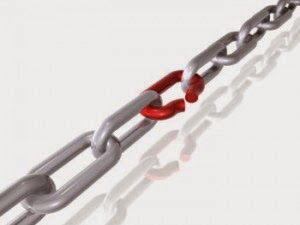The world is becoming more complicated every day as the digital
revolution continues to evolve. The Internet has made research virtually
instantaneous, and thus, has made business faster than ever. It seems
at times that there is virtually no separation between working and not
working. People are constantly working hard to further their careers by
putting in extra effort to stand out; if they don’t, they fear that they
will be overtaken by someone else who is putting in that extra effort.
Thus, it’s virtually mandatory now to be working beyond the traditional
8A-4P, 9A-5P, 10A-6P time frames. This leads to all new types of stress
factors not really present in the workplace of previous generations.
The Need To Do More
Due to the new business culture of working beyond traditional
business hours, employees are now expected to do more, whether it’s
conducting online research, writing papers, or preparing online
presentations. Businesses are hiring fewer workers who are more
qualified in many functions rather than just one main function.
Thus, a financial institution may not just want someone who is versed
in finance, but who is also versed with graphic design so that he/she
can create presentations to show to potential clients in an effort to
close important deals. A business would rather hire one employee to do
two to three functions nowadays rather than hire two to three separate
employees to handle those two to three functions separately.
In the digital age, a business must be as streamlined as possible so
that it can maximize revenues and minimize expenses. All of this added
responsibility and expectations lead to increased stress on employees.
Instead of just focusing on their majors from university, they have to
broaden their skill sets to ensure they remain in good standing with
their employers and stand the best chance of avoiding the dreaded layoff
notice.
The Toll on Family Life
This isn’t the only stress that most employees face. The extra
commitment to their careers takes more time and focus away from their
families; thus, there is an extra strain on the family unit at home
because the employee’s mind is on work-related issues more often than it
should. This can spoil those moments when one should be paying
attention to his/her partner and/or his/her kids.
While an employee is certainly not trying to be absent-minded when
important family functions come up (i.e. birthdays, anniversaries,
picnics, etc.), the pressures and stresses at the workplace can cause an
employee’s mind to drift back to the office even when he/she is at
home. There is often such a stressful atmosphere at the workplace that
it constantly plays on the mind of an employee, preventing him/her from
controlling his/her thoughts and emotions, which can spill over into
family life. This can be in the form of yelling at one’s partner or
children when yelling isn’t called for, etc. Essentially the employee is
changed from the person he/she used to be due to the pressures at work.
Some employees are able to handle this increased workload and
responsibility through perseverance and the help of family and friends.
However, others resort to crutches such as recreational drugs to gain
relief from the stress.
Drugs To Relieve The Stress Become An Uncontrollable Habit
At first, an employee will just try a drug because he/she thinks that
it will do no harm and give him/her the relief he/she needs from the
long, stressful day at work. He/She comes to find out that there is a
“high” involved with the drug, causing the person to feel a euphoria
that he/she hasn’t felt in a long time, if ever. The person likes this
feeling, this “high,” that he/she feels from the drug. This leads
him/her to go back to the drug on a repeated basis.
WebMD describes the behavior of drug addiction as a “chronic, often
relapsing brain disease that causes compulsive drug seeking and use,
despite harmful consequences to the drug addict and those around them.”
This leads to changes in the structure and function of the brain itself;
this is why, contrary to popular belief, drugs are often not a
voluntary choice. Yes, the initial decision to take a drug is usually
voluntary, but repeated use of it is often due to a subconscious desire
and lack of control because of the changes in the normal structure and
function of the brain. The repetitious drug use becomes an
uncontrollable habit that is best remedied by combining behavioral
therapy with addiction treatment medications.
In order for an employee to receive that treatment, however, he/she
needs to undergo drug screenings to determine that the employee has a
drug addiction. Mediscreen is a NATA accredited national provider of
on-site
drug and alcohol testing
support services that can help businesses identify employees who suffer
from drug addictions so they can get the help they need.
This article has been taken from : http://www.mediscreen.net.au/what-stress-factors-cause-employees-to-turn-to-drugs/























